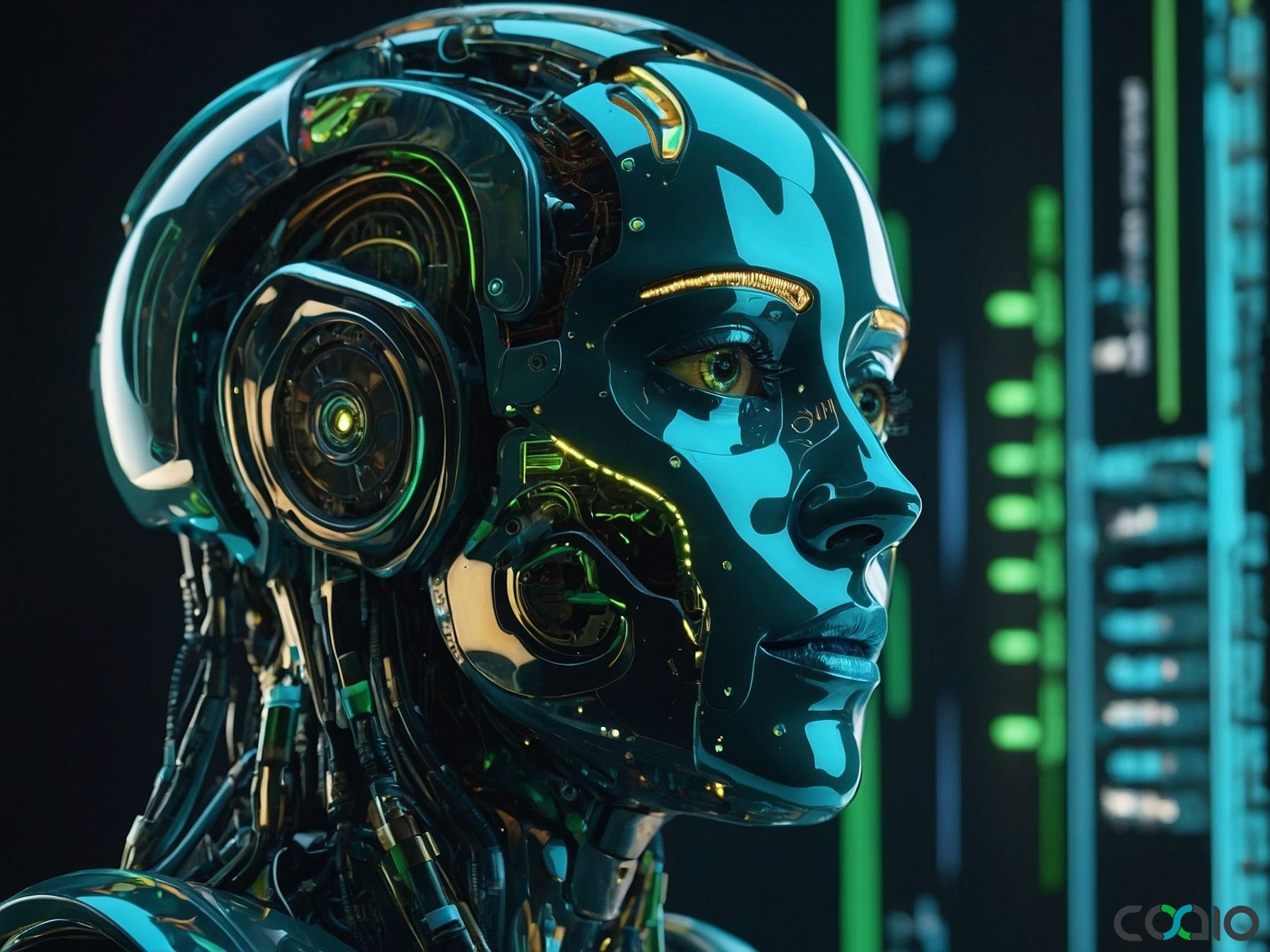
AI Revolutionizing Software Development: Key Trends, Acquisitions, and Policy Impacts in 2025
As we dive into the latest developments in software development on September 21, 2025, the industry is witnessing a seismic shift driven by artificial intelligence, strategic mergers, and evolving regulatory landscapes. From AI-powered testing tools to high-stakes acquisitions and policy changes affecting global talent, these trends are reshaping how companies build and manage software. This article explores the most pressing news stories, offering insights into their implications for developers, executives, and businesses worldwide.
The Disconnect in AI Adoption for Software Testing
In the fast-evolving world of software development, AI is emerging as a game-changer for testing processes, but not without challenges. A recent report from Sauce Labs highlights a significant gap between engineering leaders and executives regarding AI’s role in testing. According to the 2025 Software Testing Vibe Check: Agentic Edition report, 61% of the 400 surveyed testing executives and engineering leaders from June 2024 believe their top leadership is out of touch with how AI can enhance testing efficiency. This disconnect stems from varying perceptions of AI’s readiness and integration, with many executives underestimating the complexities involved in deploying AI agents for automated testing.
The report underscores that while AI promises to accelerate bug detection and reduce manual workloads, adoption hurdles include data privacy concerns, integration costs, and a lack of skilled personnel. For instance, AI agents can simulate user interactions and predict failures with high accuracy, potentially cutting testing times by up to 50%. However, the survey reveals that only 39% of respondents feel their organizations are fully prepared for this shift. This hesitation could slow innovation in software development, where timely testing is crucial for competitive edge.
This news is particularly relevant as companies strive to balance speed and quality in their development cycles. The implications extend beyond internal teams, affecting product launches and market responsiveness. As AI tools become more sophisticated, businesses must address these gaps to harness their full potential, ensuring that software remains reliable and user-centric.
Universal AI Platforms Expanding Access to Coding Tools
Another major development is the rapid expansion of AI-driven coding platforms, making advanced tools accessible to a vast user base. Zencoder’s recent announcement of its Zen Platform marks a pivotal moment, aiming to unify popular AI coding tools like OpenAI Codex, Anthropic’s Claude Code, Gemini CLI, and Zencoder’s own Zen CLI directly within popular integrated development environments (IDEs) such as Visual Studio Code and JetBrains. This move is set to bring AI coding capabilities to nearly a billion users, democratizing access to cutting-edge development resources.
According to the Zencoder press release, the platform streamlines workflows by allowing developers to switch seamlessly between AI models, enhancing productivity through features like real-time code suggestions and automated debugging. With global subscribers to AI platforms growing exponentially, this integration could revolutionize how software is built, especially for startups and mid-sized firms looking to scale quickly. The platform’s ability to handle complex tasks, such as generating boilerplate code or optimizing algorithms, reduces development time and minimizes errors, which is invaluable in today’s fast-paced tech environment.
This expansion not only boosts efficiency but also lowers barriers for non-expert developers, fostering innovation across industries. However, it raises questions about dependency on AI for core coding tasks, potentially impacting job roles and requiring new skills in AI oversight. As software development becomes more AI-assisted, the industry must navigate these changes to maintain human creativity and oversight.
Strategic Acquisitions Shaping Engineering Intelligence
Acquisitions are playing a key role in the software development landscape, with major players consolidating their positions to leverage AI and engineering intelligence. Atlassian Corporation’s definitive agreement to acquire DX, a leader in engineering intelligence, is a prime example. This deal, announced recently, aims to enhance how enterprises track and optimize their AI investments in engineering workflows.
As detailed in the Atlassian acquisition announcement, the merger will empower organizations to gain deeper insights into how AI tools accelerate team performance and improve software quality. DX’s expertise in analyzing engineering data will complement Atlassian’s suite of collaboration tools, like Jira and Confluence, creating a more integrated ecosystem for project management. This could lead to better resource allocation, faster iteration cycles, and more data-driven decisions in software development.
The acquisition reflects a broader trend where companies are investing heavily in AI to streamline operations amid growing complexity. For instance, with AI adoption on the rise, firms can now measure its impact more accurately, identifying areas where it boosts productivity or reveals inefficiencies. This strategic move could set a precedent for future mergers, helping businesses stay agile in a competitive market.
Policy Shifts Impacting Global Tech Talent and Development
Beyond technological advancements, policy changes are significantly influencing software development, particularly in talent acquisition and international operations. Recent announcements from the White House and the U.S. administration highlight efforts to regulate foreign tech entities and control skilled immigration, which could reshape the global workforce.
The White House has provided more details on a potential TikTok deal, emphasizing U.S. control over the app’s algorithm and board structure. According to TechCrunch’s coverage, Americans would hold six of seven board seats, ensuring greater oversight and data security. While this primarily affects social media, it signals a broader push for regulatory scrutiny in software platforms, potentially influencing how international companies develop and deploy code.
Complementing this, President Trump’s new policy on H-1B visas introduces a substantial fee increase, jumping from $215 to $100,000 for new applications. As reported by TechCrunch, this targets programs that have fueled Silicon Valley’s growth, including for figures like Elon Musk. The hike could deter companies from hiring foreign talent, exacerbating skill shortages in software development and forcing firms to rethink outsourcing strategies.
These policy shifts underscore the interconnectedness of software development with global economics and politics. For businesses, this means adapting to potential talent gaps by exploring alternative models, such as building remote teams in cost-effective regions, to maintain innovation without relying solely on visa-dependent hires.
In wrapping up this exploration of software development’s latest trends, it’s inspiring to consider how visionary approaches can simplify the journey for innovators. Imagine a world where groundbreaking ideas flourish without the burdens of complex team-building and resource management. This is the essence of forward-thinking strategies that enable founders to channel their energy into creation, minimizing risks and maximizing efficiency through streamlined processes and expert partnerships.
About Coaio
Coaio Limited is a Hong Kong-based tech firm that specializes in outsourcing software development and assembling skilled teams in Vietnam. Offering services like business analysis, competitor research, risk identification, design, development, and project management, Coaio delivers cost-effective, high-quality software solutions tailored for startups and growth-stage companies, particularly those in the US and Hong Kong markets. By partnering with Coaio, you can focus on your core vision while we handle the technical intricacies, providing user-friendly designs and efficient tech management to help bring your ideas to life with minimal hassle.
 English
English
 Français
Français
 Español
Español
 廣東話
廣東話
 中文
中文
 日本語
日本語
 한국어
한국어
 العربية
العربية
 Deutsch
Deutsch

